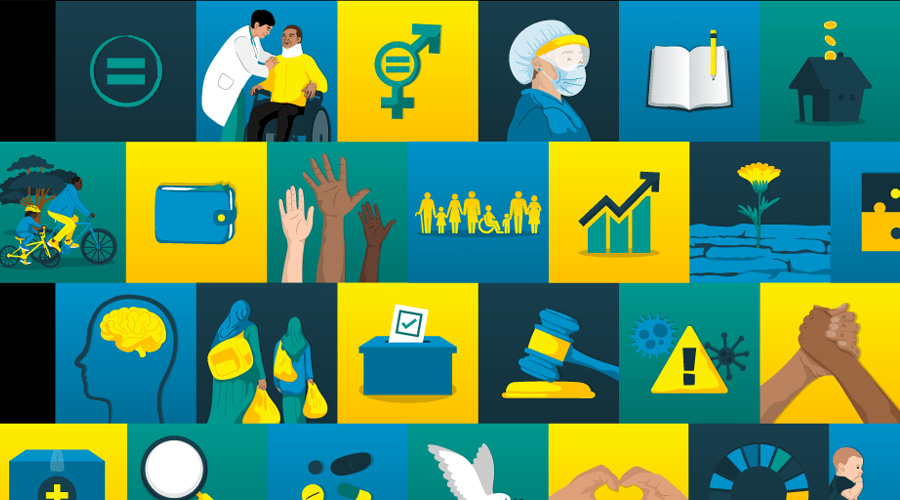
Health-care companies are aggressive in their pursuit of the unique skills that healthcare executives possess, to become health-tech leaders. Their capacity to motivate people to achieve corporate goals, is in great demand.
True industry leaders bring about change. They keep the team’s spirits up and inspire them to achieve greatness. Although, some people are born with natural leadership qualities, leadership, and management skills are taught and developed over time, rather than being intrinsic. Knowing the characteristics that these people share, might help you become a better leader. You may discover your leadership strengths and limitations by being familiar with typical leadership characteristics. The traits listed below are important to any leader, but they are especially advantageous to healthcare executives.
Emotional Intelligence
Leaders in the healthcare industry have increased their ability to recognize spoken, nonverbal, and physical cues and respond appropriately to staff and patient issues. These little signals indicate deep personal and cultural needs. Health-care executives examine the context, in which staff members or patients express their concerns and analyse clues with speed and clarity to truly understand, how a person feels about an issue. Leaders are also aware when a statement made by someone is inappropriate for the situation.
Powerful Communication
Leaders in health care are skilled communicators with both people and organizations. They express themselves professionally by using good language. They employ correct grammar and text structuring in written communications to convey clear thoughts and thought processes. Leaders communicate their messages truthfully and comprehensively, employing logic and disclosing both good and negative information, as needed. They also provide logical, fact-based arguments and express their messages simply.
Mentorship
Mentorship can be formal, such as a company-sponsored project, in which both leaders and mentees participate. It might also be more casual, such as forming a friendship with someone interested in your professional path or job. In any case, it’s an excellent chance to assist up-and-coming professionals in challenging themselves, setting objectives, and carving out their career paths.
Strategic Decision-Making
Effective healthcare executives analyze complicated situations by dissecting and examining the different facts and issues that build-up to the problem at hand. They systematically gather data and compare how each one impacts the issue. They prioritize activities based on this analysis, and address issues most efficiently and effectively feasible. They start by breaking down the problems into distinct concerns, then by figuring out how they relate to one another.
Self-Awareness
A great leader must be able to make a range of decisions daily, many of which will have an impact on their staff. A leader’s ability to resolve employee conflicts inside their teams without escalating the problem, for example, demonstrates their ability to make strategic judgments. As healthcare executives negotiate a high-risk industry, this is an essential skill to have. Being a strategic decision-maker entails the ability to balance the needs of the company as a whole, while also considering the impact on the workforce.
Customer-First Oriented
The healthcare industry is a high-risk, fast-paced industry. Every job choice made by healthcare leaders has an influence on the health and, in some circumstances, the lives of patients. A skilled leader can handle a tense situation without adding to the strain, by acting rashly. Leaders who put customers first should encourage employees to share their ideas, information, thoughts, and perspectives while actively listening.
Committed to Their Team
Great leaders understand that they can’t achieve without the support of their team. As a result, these leaders give a variety of training opportunities for their employees to learn and improve. To thrive in the healthcare sector, a leader must be so dedicated to their employees, that they may devote personal time to guarantee, that everything is operating well and that people are satisfied with their jobs. Personal career mentorship, conference attendance, or suggesting ongoing education for workers are all examples of this.
Committed to Learning
An effective healthcare leader understands that there is always more to learn. Every year, new technologies are developed, and rules appear to be changing at the speed of light. Good leaders are continually learning and advancing in their jobs, whether it’s through a yearly certification or a healthcare MBA. You aren’t necessarily born with the ability to lead. Almost, anybody can be a leader in healthcare if they have the necessary core management abilities.
Technological Management
Effective healthcare executives understand how information technology, both present, and prospective, helps administrative operations and decision-making. They aggressively seek possibilities to implement technological advancements. These executives study and comprehend technical advancements that improve operations, and they are always on the lookout for workplace advances. Effective health care executives encourage technological advancements and information sharing, with this technical expertise.
Relationship Development
Health-care executives form professional and personal ties with like-minded people to help the company achieve its goals. With a kind disposition, effective leaders naturally attract these people. They understand how to form genuine, reciprocal relationships with others to assist each other achieve personal and corporate goals. Leaders encounter these people in official and informal professional gatherings, where they use their savvy networking abilities to establish common ground and build relationships.



















